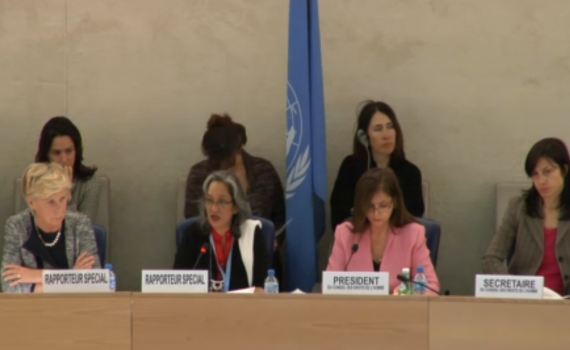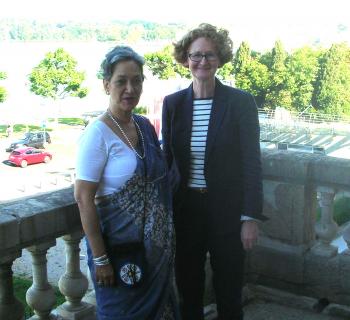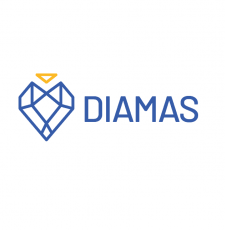
On 11 March 2015, the United Nations Special Rapporteur in the field of cultural rights presented her report ‘Copyright Policy and the Right to Science and Culture’ at the 28th session of the Human Rights Council in Geneva. The thematic report examines copyright law and policy from the standpoint of the right to science and culture, recognized in the Universal Declaration of Human Rights (Article 27) and the International Covenant on Economic, Social and Cultural Rights (Article 15), as well as in regional human rights conventions and national constitutions.
To assist the research of the Special Rapporteur, Farida Shaheed, EIFL participated in June 2014 in a rather lively expert meeting with other stakeholders at the Office of the High Commissioner for Human Rights (OHCHR) in Geneva. EIFL welcomes the final report that brings discussion on copyright issues to the wider UN community, explores important social and human dimensions that often get overlooked in more technical debates, and provides an opportunity to discuss, and help resolve, tensions between copyright and the right to access knowledge.
Interactive dialogue with member states
In opening remarks at the Interactive Dialogue with members of the Human Rights Council, Shaheed highlighted key points from the report: intellectual property rights are not human rights, authors must be distinguished from copyright-holders, and protection of authorship requires in some ways more and in other ways less than what is currently found in the copyright laws of most countries.
Reactions from members of the Human Rights Council to the report largely divided between supportive developing nations (such as Pakistan, Egypt, Algeria, Paraguay, Indonesia, Brazil, Bangladesh), and high income countries that disagreed with the recommendations (such as the US, EU, Japan, Norway and France). In their interventions, Estonia spoke about an interest in open access to materials, and Brazil noted the potential of Open Educational Resources (OERs) to expand cultural participation.
Some delegates suggested that other institutions such as the World Intellectual Property Organization (WIPO) should rather be taking care of such issues that involve copyright, that could be described as a case of 'pass the parcel'. This is because when the World Blind Union (WBU) first brought to WIPO their request for copyright reform that had a human rights dimension - to enable the right to read for persons with print disabilities - some argued that WIPO was not the right forum. In the end, the Marrakesh Treaty for persons with print disabilities was adopted in 2013 by WIPO member states. Read about EIFL's work to support ratification of the Marrakesh Treaty.
"Cultural participation and the protection of authorship are both human rights principles designed to work in tandem. Striking an appropriate balance between the two goals is thus essential, even if challenging."
Opening remarks of the Special Rapporteur in the field of cultural rights, 28th session of the Human Rights Council, 11 March 2015
Copyright through a human rights lens
The human rights lens through which copyright is viewed in the 24-page report produces a clear, but more nuanced analysis as the focus is deliberately shifted away from trade aspects and the perspective of cultural industries that have come to dominate the direction of copyright law and policy, often at the expense of broader public interest concerns. The report notes that corporate rightsholders must not be presumed to speak for the interests of authors, ‘stronger’ copyright protection does not necessarily advance the material interests of creators, and states have an obligation to promote creators’ ability to earn a livelihood.
With the emphasis firmly on the individual author, the report draws a distinction between moral and material (economic) rights, asserting that the human right to authorship is not simply a synonym for copyright protection, but instead a concept against which copyright law should be judged. Furthermore, as the economic interests of corporate rightsholders do not enjoy the status of human rights, copyright policy and industry practices must be judged by how well they serve the interests of human authors, as well as the public’s interest in cultural participation.
Tools for cultural participation
 A quarter of the report is devoted to copyright policy and cultural participation - of high interest to libraries - that relies upon the dual needs of accessing the knowledge and creations of others, and of self-expression. The basic tools to enable meaningful participation are identified as copyright exceptions and limitations and open licensing. Exceptions and limitations can empower new creativity, expand educational opportunities and space for non-commercial culture, promote inclusion for disadvantaged groups, such as persons with disabilities and speakers of non-dominant languages and where exceptions are compensated, can help assure artistic livelihoods.
A quarter of the report is devoted to copyright policy and cultural participation - of high interest to libraries - that relies upon the dual needs of accessing the knowledge and creations of others, and of self-expression. The basic tools to enable meaningful participation are identified as copyright exceptions and limitations and open licensing. Exceptions and limitations can empower new creativity, expand educational opportunities and space for non-commercial culture, promote inclusion for disadvantaged groups, such as persons with disabilities and speakers of non-dominant languages and where exceptions are compensated, can help assure artistic livelihoods.
Open licensing has emerged as an agile, low-overhead copyright management scheme that benefits both authors and licensees in the digital environment. The report highlights that open access has had a particularly profound impact on the wide dissemination of online scholarly knowledge. This is in contrast to restricted-access dissemination models that hinder the moral interests of scientific authors, and deny access to students, citizens and fellow scientists when the burden of high subscription fees proves too great for their libraries and universities, especially in low-income countries. (In some developing countries, the subscription fee to a single database may exceed the total annual budget of a university library).
30 recommendations
The 30 recommendations try to draw together the various elements needed, from the point of view of the Special Rapporteur, to exercise the right to science and culture today. Issues include transparency in law-making, compatibility of copyright laws with human rights, safeguarding the right to science and culture and copyright in the digital environment, and adopting policies and fostering access to science and culture for indigenous peoples, and marginalized groups.
In particular and most encouragingly, the recommendation in paragraph 109 says that WIPO members should support the adoption of an international instrument for libraries and archives with a core set of limitations and exceptions commonly recognized in national law, and to explore the notion of an international ‘fair use’ provision. EIFL strongly endorses the recommendation that supports (programme/copyright-and-libraries-programme/we-advocate-global-copyright-rules-benefit-libraries) our work at WIPO’s Standing Committee on Copyright and Related Rights (SCCR) for mandatory global rules to benefit libraries. Other important recommendations include:
- ensuring transparency and public participation in law-making (Paragraphs 92 and 93)
- protecting exceptions and limitations in the digital environment (Paragraph 107)
- exceptions and limitations that promote creative freedom and cultural participation are consistent with protection of authorship (Paragraph 105)
- a flexible interpretation of the three-step test (Paragraph 104)
- adopting policies to promote open access to published research and data (Paragraph 113)
- maintaining the waiver of Least Developed Countries to implement the TRIPS agreement (Paragraph 110)
- ratifying the Marrakesh Treaty for persons with print disabilities and including persons with other disabilities, such as deaf people (Paragraph 116)
Joining the dots
Shaheed underlined that cultural rights are important because they provide opportunities to realize other human rights such as personal autonomy, and the exercise of political and civil rights. As her tenure as the first independent expert rapporteur in the field of cultural rights draws to a close, Shaheed also expressed the hope that cultural rights, still considered secondary and to be compromised when priorities are set, will gain increasing recognition.
EIFL contributed to a previous thematic report from the Special Rapporteur on 'The right to benefit from scientific progress and its applications' (2012), and participated in a related seminar in 2013.
EIFL thanks the Special Rapporteur for drawing attention in the two reports to the interaction of copyrights and human rights on the ability of everyone to access, contribute to and participate in science and culture. We hope that the work will help to join the dots, instead of just passing the parcel, when it comes to developing copyright law and policy.
Read more
- Global Library and Archives Community welcomes new report from United Nations Special Rapporteur on Copyright Policy and the Right to Science and Culture
- IP Watch - UN Human Rights Council Debates Report Criticising Copyright
- Copyright, Open Access, and Human Rights Kevin Smith J.D. Scholarly Communications @ Duke
- Copyright Policy and the Right to Science and Culture [pdf]
- "Information is a human right" Video: How a university in Kenya is opening up their research to the world
Notes
The Human Rights Council is an inter-governmental body within the United Nations system made up of 47 States responsible for the promotion and protection of all human rights around the globe. It holds at least three regular sessions per year.
Special Rapporteurs are independent experts appointed by the Human Rights Council to examine specific country situations or themes from a human rights perspective. The position is honorary and the expert is not a staff of the United Nations nor paid for their work.
SHARE / PRINT








